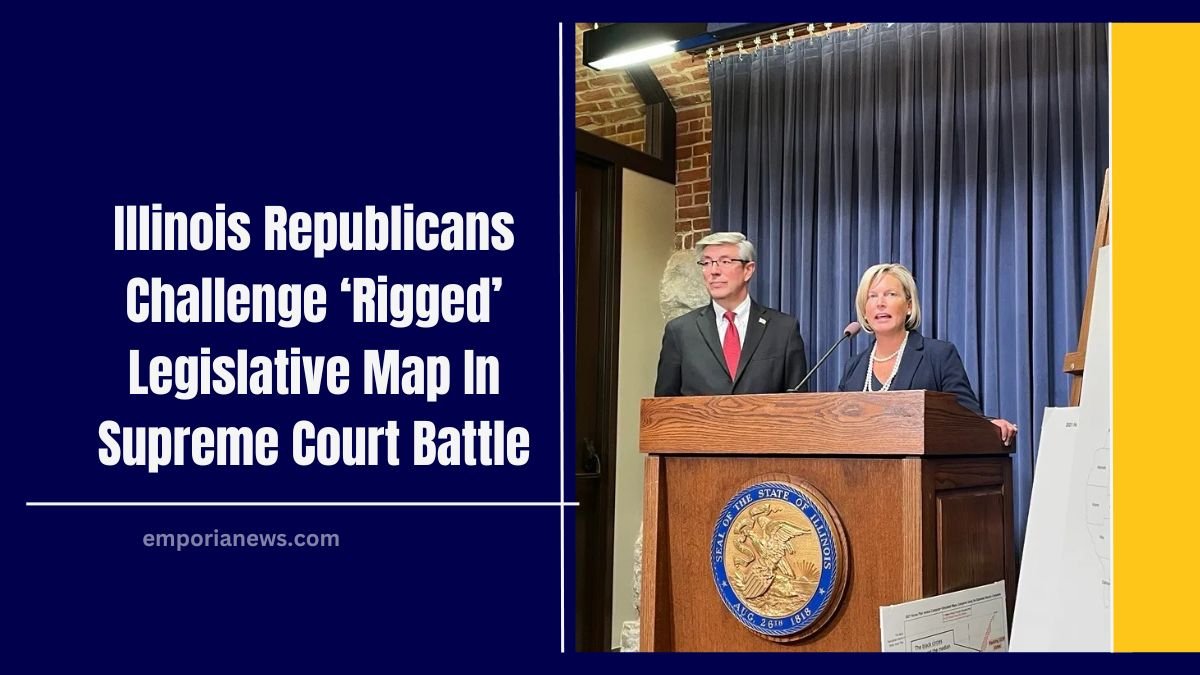In a significant legal move, Illinois House Republican Leader Tony McCombie, alongside five voters, has filed a lawsuit with the Illinois Supreme Court challenging the state’s 2021 legislative district map.
The plaintiffs argue that the map is unconstitutionally gerrymandered to favor Democrats, compromising the principles of fair representation.
Allegations of Partisan Gerrymandering
The lawsuit contends that the current legislative map violates the Illinois Constitution’s mandate for “free and equal” elections.
It highlights concerns over the compactness of districts, noting that many have irregular shapes that undermine cohesive representation.
McCombie emphasized that these maps are designed to entrench Democratic control, effectively silencing voters who support the minority party.
Historical Context of Illinois Redistricting
Redistricting in Illinois has historically been contentious. The process often reaches a stalemate, leading to a random selection to determine which party will draw the map—a method that has favored Democrats after the U.S. Census for the past three decades.
In 2016, nearly 600,000 voters supported a ballot initiative to establish an independent commission for mapmaking, but the state Supreme Court deemed the plan unconstitutional.
Recently, GOP Representative Ryan Spain introduced a constitutional amendment proposing a nonpartisan commission to oversee redistricting.
Current Political Landscape
Democrats currently hold a supermajority in the Illinois General Assembly, controlling 78 of 118 House seats and 40 of 59 Senate seats.
In the state’s congressional delegation, Democrats outnumber Republicans 14 to 3, with both U.S. Senate seats held by Democrats.
Legal Remedies Sought
The plaintiffs are requesting that the Illinois Supreme Court appoint a special master to draft a new legislative map. Despite the court’s 5-2 Democratic majority, Republicans are optimistic about receiving an impartial hearing.
Representative Dan Ugaste expressed hope that changes will be implemented before the 2026 candidate petition period begins in December.
Discrepancies in Representation
Ugaste highlighted that in the 2022 elections, Democratic legislative candidates secured 50% of the statewide vote but won 66% of the seats.
He also pointed out that many districts lack competition, leading to uncontested races where representatives assume office without presenting policy ideas to voters.
Potential Impact of an Independent Map
When questioned about the possibility of Republicans gaining a majority under an independently drawn map,
Representative Spain acknowledged the potential but emphasized that the core issue is empowering voters to decide their government’s composition and functionality. He stressed the need for systemic change to restore voter influence.
The lawsuit filed by Illinois Republicans underscores ongoing concerns about partisan gerrymandering and its impact on fair representation.
As the case progresses, it could have significant implications for the state’s political landscape and the broader national conversation on electoral integrity.




